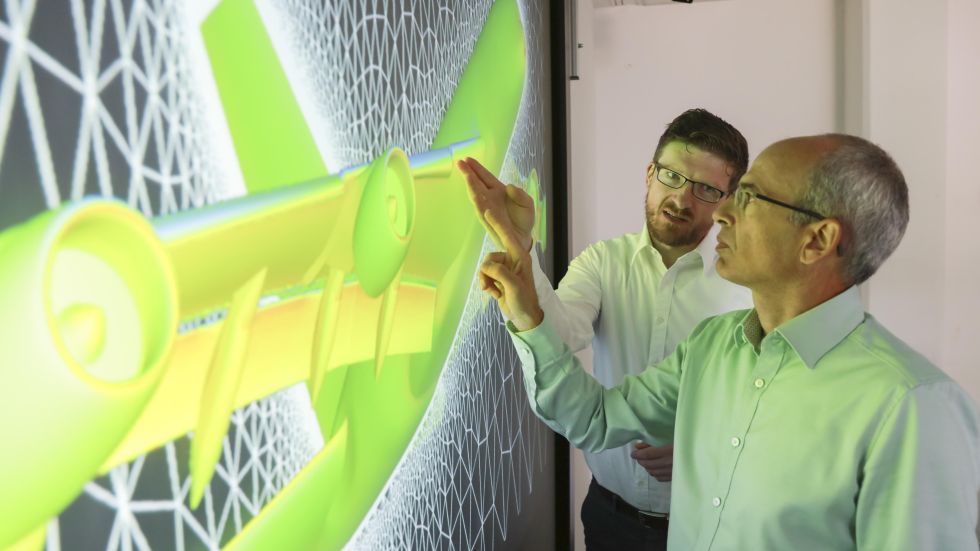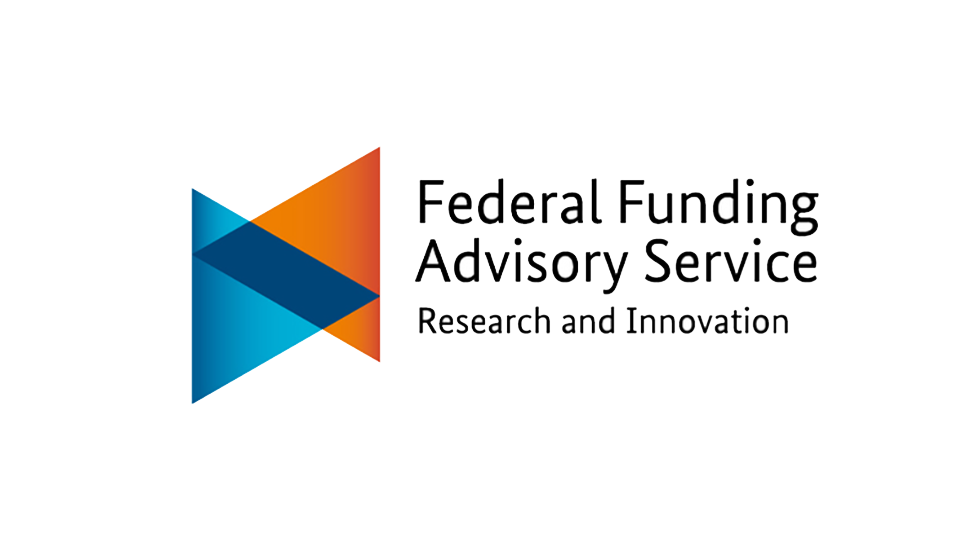R&D policy framework

Germany is one of the world’s leading countries in research and development. This is in part thanks to its effective system of research support. As well as funding infrastructure and institutions, it supports cutting-edge research at universities and companies. Furthermore, it fosters cooperation between industry and science and provides support for innovative business start-ups.
Germany has set itself the goal of spending 3.5 per cent of gross domestic product on research and development by the year 2025, one of the highest proportions of any country worldwide. Framework programmes like the High-Tech Strategy define which areas will be prioritised and how the money will be invested.
- Future Strategy for Research and Innovation
The Future Strategy for Research and Innovation aims to boost Germany’s innovative potential and ensure Europe’s technological sovereignty. The Future Strategy is intended to meet the changed requirements at state, political and government level that result from the current crises and necessary transformation processes.
www.bmbf.de > Zukunftsstrategie Forschung und Innovation (only in German) - Internationalization Strategy
The global challenges of the present and future can no longer be solved by national efforts alone. The Federal Government’s Strategy for the Internationalization of Education, Science and Research brings together people worldwide to develop joint solutions.
www.bmbf.de > Internationalization Strategy - Education and science diplomacy
Establishing partnerships (connect), providing policymakers with knowledge-based advice (inform) and creating the conditions for independent science, research and teaching (enable) are the pillars upon which education and science diplomacy is based. The BMBF is committed to expanding and further improving the framework conditions for networking and cooperation worldwide.
www.bmbf.de > Bildungs- und Wissenschaftsdiplomatie (only in German) - Science diplomacy
Through its science diplomacy, the Federal Foreign Office connects science, civil society and policymakers, commits itself to freedom of science worldwide and builds bridges between countries and their societies through international cooperation and exchange. Scholarship programmes that enable international students and researchers to spend time in Germany are one key element of foreign science and higher education policy.
www.auswaertiges-amt.de > Wissenschaftsdiplomatie (only in German)
Universities and higher education institutions are important research actors in Germany. They and the publicly funded non-university research organisations spend approx. 34.2 billion euros a year on research and development. The Federal Government and the German states have established special funding programmes to secure the sustainability – also in personnel terms – of educational, scientific and research organisations, to enable cutting-edge research and improve the quality of teaching.
- Excellence Strategy
Enabling and accelerating cutting-edge research is the goal of the Excellence Strategy. A commission of international experts decides on the distribution of millions of euros of funding for excellence clusters and excellence universities.
www.dfg.de > Excellence Strategy -
UAS.International
UAS.International is a programme that aims to increase the internationalisation of studies and teaching at universities of applied sciences (UASs) – or Fachhochschulen – by providing support to their students and staff during stays abroad and to universities engaging in collaborative projects with international partners.
www.daad.de > UAS.International
- Pact for Research and Innovation
The large non-university research organisations also face international competition. The Pact for Research and Innovation aims to strengthen their position by creating the stable financial conditions and freedom of movement needed by cutting-edge research at the international level.
www.bmbf.de > Pact for Research and Innovation (only in German)
The focus here is on cooperation: science and industry working closely together in an interdisciplinary way and across national borders. This aims not only to strengthen regional potential, but also to address global challenges.
- go-cluster
Research partnerships also need management. This is where the go-cluster programme provides support for members of clusters. It assists with marketing, international networking and continuous further development.
www.go-cluster.de - Future cluster initiative “Clusters4Future”
The funding aims to connect regional partners in innovation networks on the basis of excellent research and its results. The idea is to transfer cutting-edge technologies and scientific methods and instruments to applications and value-adding as quickly as possible.
www.clusters4future.de (only in German) - Innovation and structural change/WIR!
This funding concept focuses on those regions in Germany that have been identified as structurally weak. It aims to strengthen regional potentials in a targeted way in order to support structural change. In the process it is funding broadly based, interdisciplinary alliances that cross sectoral and institutional boundaries. Civic initiatives and other actors are also to be involved in a targeted way.
www.bmbf.de > Innovation and structural transformation/WIR! - Research Campus
Science and industry work together in the supported research campuses: for example, on new methods for diagnosing infectious diseases or on the reorganisation of the electricity supply for the energy transition. They are supported here by the Research Campus – Public-Private Partnership for Innovation funding initiative.
www.forschungscampus.bmbf.de - Innovative Hochschule
The Innovative Hochschule funding measure focuses on transfer and innovation and is especially aimed at small and medium-sized universities as well as universities of applied sciences.
www.bmbf.de > Innovative Hochschule - Research at Universities of Applied Sciences
Feasibility and practical application are the main focus of research at universities of applied sciences in Germany. Providing targeted support for this research and making its findings accessible to the economy and beyond are the goal of the Research at Universities of Applied Sciences programme.
www.forschung-fachhochschulen.de
Small and medium-sized enterprises (SMEs) often excel as so-called hidden champions and are technological pioneers in their field. It goes without saying, however, that it is not particularly easy for small businesses to finance fundamental or larger research projects. As a result, many funding programmes aim to support these enterprises and their research projects.
- Industrial Collective Research
Though basic research is also important for SMEs, they are often unable to finance it. Industrial Collective Research (IGF) facilitates joint research on good project ideas. The findings are then available to all enterprises.
www.aif.de > Collective Research - Central Innovation Programme SME
Innovative SMEs and cooperating research institutions can receive grants for their R&D projects.
www.aif.de > Central Innovation Programme SME
Young firms are already of major importance in several economic sectors. Business founders from the world of science and research can receive support from funding programmes that assist, for example, in obtaining venture capital from private investors.
- EXIST
EXIST is a programme that supports business start-ups from the research community in various ways: for example, with a founder’s grant for university graduates, students and researchers. The programme can also be used to finance the development work required to determine whether a (research-based) start-up idea is feasible at all.
www.exist.de - High-Tech Gründerfonds
High-Tech Gründerfonds (HTGF) is Germany’s largest investor involved in financing the initial phase of development in innovative and technology-oriented enterprises. However, HTGF not only helps with initial funding, but also provides strong support for the foundation of new businesses.
www.high-tech-gruenderfonds.de - INVEST – Grant for venture capital
INVEST brings together business start-ups and private investors. The programme subsidises private venture capital from business angels and thereby helps start-ups to find an investor more easily.
www.exist.de > INVEST – Grant for venture capital (only in German)
www.youtube.com > The INVEST funding programme in a nutshell (only in German) - Federal Agency for Disruptive Innovation – SPRIN-D
SPRIN-D is looking for people with exceptional ideas – with proposals that have the potential to profoundly change entire markets. The agency aims to find innovative entrepreneurs of this kind and enable them to make major breakthroughs.
www.sprind.org
Federal Funding Advisory Service on Research and Innovation
The Federal Funding Advisory Service on Research and Innovation informs potential applicants about the federal research structure, funding programmes and the points of contact as well as about current funding priorities and initiatives.
